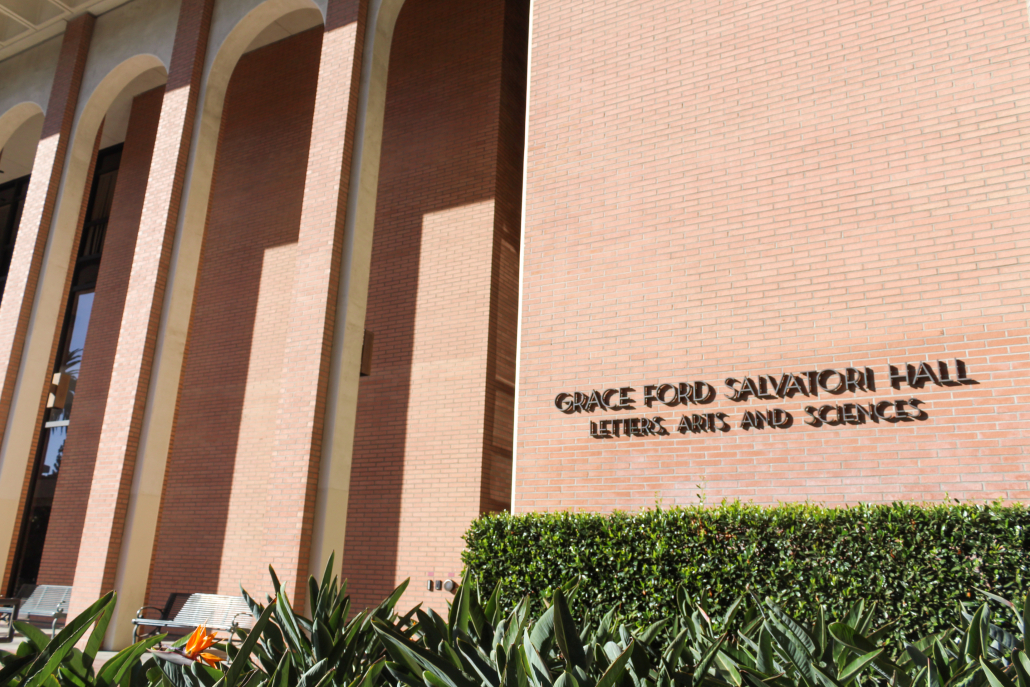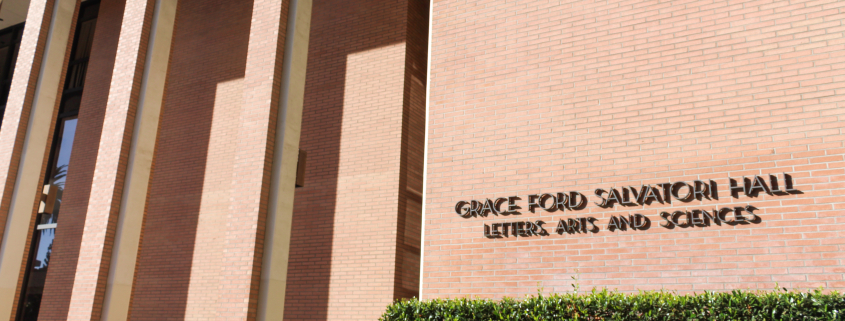Accommodations raise concerns

Diagnosed with a chronic illness during her second year at USC, Rachel Estrada almost gave up on her degree. She dropped out of college, as her disability prevented her from attending classes in person.
“I was struggling with severe fatigue — I had these chronic fevers and joint pain, muscle pain,” said Estrada, a senior majoring in philosophy. “There were times when I was just lying down in the lawn because my body was hurting that badly.”
But when Zoom came along with the pandemic, going back and finishing her degree became a reality. Estrada re-enrolled at USC, improved her grades, made the Dean’s List for the first time and was on track to graduate.
But virtual learning was never meant as a permanent addition. When USC announced early December a transition to in-person instruction for the first two weeks of the spring semester, there was no clarification as to whether virtual accommodations would continue through the transition. The Student Assembly for Accessibility and the Student Coalition Against Labor Exploitation raised concerns via an Instagram post that USC may no longer be planning “to provide virtual accommodations (ex. hybrid option, recorded lectures) for [Office of Student Accessibility Services]-registered students.”
“I heard that and I cried,” said Estrada about the Instagram post. “I was like, ‘I’m going to be one semester short of getting my degree,’ because, even with treatment, I’m just not able to physically [attend classes].”
In a statement to the Daily Trojan, OSAS clarified that virtual accommodations will continue in the midst of the omicron surge, “in order to minimize disability-related barriers and to ensure equal access.” OSAS said they had only notified a select few “students whose accommodations were set to expire,” reminding them of deadlines; Otherwise, registered students received neither confirmation nor denial as to whether virtual accommodations would continue.
“As an undergraduate student that has been registered with OSAS, … I’ve never once received an email from OSAS stating that virtual accommodations were possible,” said Vincent Hsueh, co-executive director of SAA.
Before the University released clarification, some students, like Estrada, were left confused and unsure about whether accommodations would be provided for immunocompromised students and students with disabilities.
“I thought I was going to have to drop out again,” Estrada said.
In addition to her symptoms, Estrada’s immunodeficiency meant in-person instruction was a tremendous risk. She takes immunosuppressive medications to treat her disability, which she said adds “additional stress” in worrying about contracting the coronavirus.
Estrada was not alone in her shock regarding the potential change in USC policy. A survey collecting student concerns, released alongside the post by SAA and SCALE, received upward of 1,000 responses in four days.
“Most students were very concerned for their health and safety, especially in regards to getting COVID and … how campus life will be managed,” said Hsueh regarding the responses.
“USC left a lot of faculty, staff and students in a grey area, because … they haven’t made it really clear as to what [the in-person transition] pertains to,” Hsueh said. “Is this completely set in stone? Are there potential alternative routes?”
SAA initially planned to present the survey results to the Undergraduate Student Government at its Dec. 6 meeting before it was postponed indefinitely. It was only when Hsueh, along with co-director Kimi Zamora and USG vice president Lucy Warren, met with Associate Vice Provost for Institutional Accessibility and ADA Compliance Christine Street that he received direct clarification.
“I was then directly notified that there have been countless requests by students, requesting virtual accommodations through OSAS,” Hsueh said. “Only a select few have been approved for virtual accommodations. But those circumstances are very specific.”
According to OSAS’ statement to the Daily Trojan, this was business as usual. “OSAS’ overall accommodation process remains the same,” the statement read. “Accommodations are determined on an individualized basis through an interactive process.”
OSAS has yet to release public communication clearing up the confusion. In the meantime, Hsueh says SAA still has “continuously been receiving emails and requests from students to see whether or not virtual accommodations can be requested.”
Hsueh, a senior with a mobile disability, said he believes online learning and recorded lectures should be available as a permanent option. Under the current accommodations, it is “primarily up to the professor whether or not they feel comfortable offering their course via Zoom,” Hsueh said. “Not a lot of faculty members are entirely comfortable with the idea of being online again, especially as we return in person this semester.”
Even before the pandemic, Hsueh said he recalled some professors who would record their lectures and post them online. Hsueh said virtual lectures “definitely improved my experience at USC.”
“If your education … has restrictions on it, then that directly negatively impacts the quality of your education,” he said.
Hsueh is not alone — he said SAA is even receiving emails asking whether there was “anything SAA can do on behalf of students to push for virtual classes to be available to not just students with special circumstances or disabilities but to the student body as a whole.”
Estrada also wishes online learning “wasn’t because of COVID,” but that it be available as “just an option.”
“People deserve to have the ability to watch every lecture that they missed,” she said. “There are a lot of people with illness that deserve to have the opportunity to go to the school of their dreams. They don’t deserve to lose that because they’re sick.”
Hsueh said he looks to “facilitate more dialogue in the student body,” in the hopes that “USC will make their statements more clear to students in order to avoid adding on to the growing concerns.”

